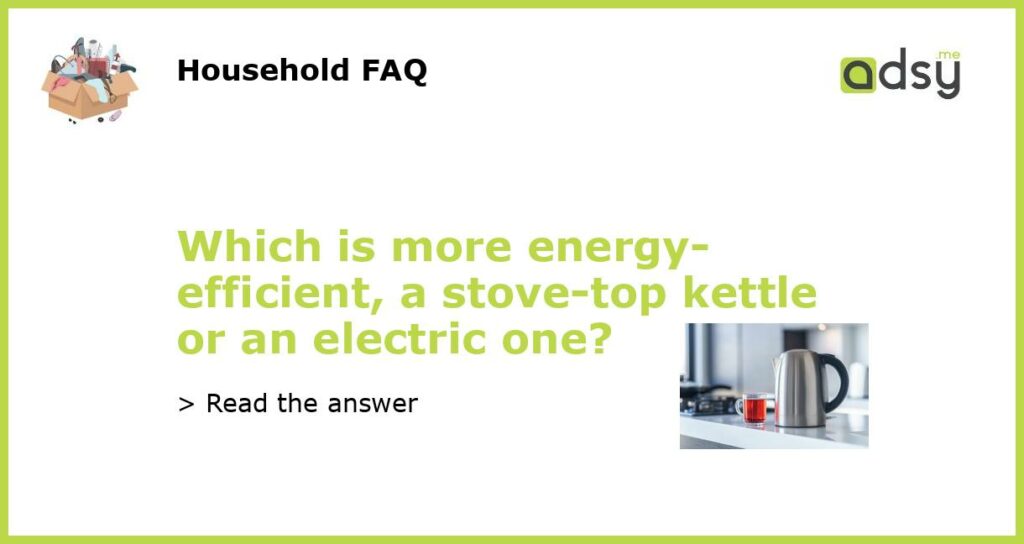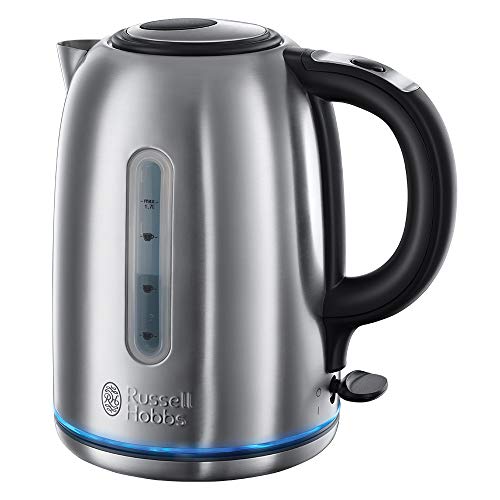Stove-Top Kettle vs Electric Kettle: Which One is More Energy-Efficient?
As we strive to make our lives more environmentally friendly, it’s important to consider the energy efficiency of our everyday appliances. One appliance that often comes into question is the kettle – a staple in many households for boiling water. When it comes to energy efficiency, the debate often revolves around the stove-top kettle versus the electric kettle. In this article, we will explore the energy usage of both types of kettles and determine which one is more energy-efficient.
Understanding Energy Efficiency
Before we dive into the specifics of the stove-top kettle and electric kettle, let’s take a moment to understand what energy efficiency means in this context. In simple terms, energy efficiency refers to how effectively an appliance uses energy to perform its intended task. An energy-efficient appliance will consume less energy to achieve the same result as a less efficient counterpart.
The Stove-Top Kettle: Traditional But Energy-Intensive
Stove-top kettles have been in use for centuries and are a classic choice. These kettles are made of heat-conductive materials like metal and have a base that sits directly on top of a stove burner. They rely on the heat produced by the stove to heat the water inside. While stove-top kettles have stood the test of time, they do tend to be more energy-intensive compared to electric kettles.
When using a stove-top kettle, the heat generated by the stove burner can escape into the surrounding air, leading to heat loss. Additionally, it takes longer for a stove-top kettle to reach boiling temperature compared to an electric kettle. This extended boiling time means more energy is required to heat the water. Furthermore, if the kettle is not properly sized for the burner, excess heat can escape, wasting energy.
The Electric Kettle: Efficient and Quick
Electric kettles have gained popularity in recent years due to their convenience and efficiency. These kettles have an integrated heating element and are powered by electricity. One of the main advantages of electric kettles is their ability to quickly heat water. With an electric kettle, you can have boiling water within minutes, whereas a stove-top kettle may take much longer.
In terms of energy efficiency, electric kettles are known for their superior performance. The heating elements are designed to quickly transfer heat to the water, minimizing heat loss. Additionally, most electric kettles have automatic shut-off features that prevent energy wastage once the water reaches boiling point. These energy-saving features make electric kettles a more eco-friendly option.
The Verdict: Electric Kettle Wins the Efficiency Battle
When considering which one is more energy-efficient, the electric kettle clearly emerges as the winner. Its quick heating time, minimal heat loss, and automatic shut-off feature contribute to its superior energy efficiency. Electric kettles use less energy on average compared to stove-top kettles. However, it’s important to note that energy efficiency also depends on factors such as kettle size and the amount of water being boiled.
While electric kettles may be more energy-efficient, it’s worth mentioning that stove-top kettles can still be a viable choice for those who prioritize tradition or prefer the taste of water boiled on a stove. It’s crucial to consider your personal preferences and lifestyle needs when making a decision about which type of kettle to choose.






